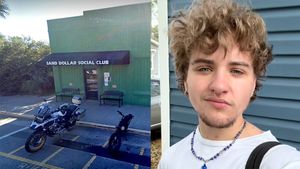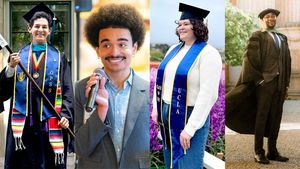Female Service
Members Disproportionately Affected by DADT
Female Service
Members Disproportionately Affected by DADT
Women in uniform are disproportionately affected by
"don't ask, don't tell," according to
the Servicemembers Legal Defense Network, an advocacy
group for military personnel. While women account for
approximately 15% of the Army and the Air Force, they make
up nearly half of all DADT discharges.
"'Don't ask, don't tell'
is often used as a weapon of vengeance against service
members.Women in
particular have been caught in the crosshairs of this
counterproductive law," said SLDN director
Aubrey Sarvis.















































































